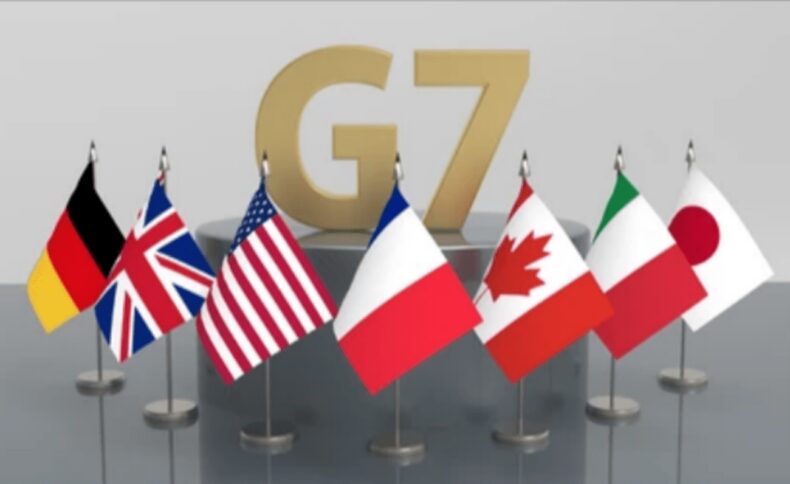The United States, Japan, and other G7’s resolute stance against Beijing is increasing and is expected to announce measures to counter China’s economic coercion.
Table of Contents
Introduction:
In recent years, China has become the world’s economic powerhouse, using its economic coercion to control its interests and influence other countries. Economic policies and practices are one of the areas where this effect is most evident. Realizing the need to solve the problem together, the Group of Seven (G7) countries united in their relentless opposition to China’s economic coercion. This article explores the importance of G7 leaders in promoting fair and equitable trade around the world.
Understanding China’s Trade Policy:
The term “coercive trade” refers to China’s use of money and power to force other countries to conform to its political aims or ideas. It uses a variety of tactics, including trade cuts, access to unfair trading practices, intellectual property theft, and financial sanctions. Such behavior not only hinders free competition but also affects the freedoms and stability of the affected countries.
G7’s Resolute Stance:
The G7, which includes the world’s seven largest economies (Canada, France, Germany, Italy, Japan, the United Kingdom, and the United States), recognizes that the Chinese economy must be challenged urgently. The G7 is committed to promoting the benefits of free and fair trade, protecting intellectual property, and working together to level the playing field for all countries.

Strengthening G7’s Economic Policy:
G7 has strengthened the existing laws and regulations of the economy as one of its main strategies. The G7 supports organizations like the World Trade Organization (WTO) and wants China and other countries to comply with fair trade standards. Addressing issues such as technological change, economic discrimination, and privacy theft are all part of the equation.
British officials said the G7 leaders will unveil a platform that will provide a forum for identifying the weaknesses of trade and cooperation in defense. “The platform will address the growth and detrimental use of economic governance to influence the governance of other countries,” British Prime Minister Rishi Sunak said before the meeting on financial security on Saturday. US Ambassador to Japan Rahm Emanuel said that China is using debt-trap diplomacy and “competency of power” to destabilize the politics and economy of various countries.
Promoting Transparency and Accountability:
Transparency and accountability are essential to prevent Chinese financial mistakes. G7 countries are trying to focus on deals and investments. They do this to avoid ethical or confidential content that could affect other countries. The G7 also stressed the importance of enforcing existing agreements and holding countries accountable for any violations.
Diversification of Supply Chains:
Many countries are now vulnerable to economic stress due to their over-reliance on China in the world supply chain. The G7 wishes to encourage regional and international cooperation to diversify its supply chain and reduce this disadvantage. Minimizing the impact of the regulatory regime requires identifying purchasing options, encouraging investment in key businesses, and building supply chain resilience.

Working with like-minded Countries:
The G7 understands the value of working with like-minded friends to cope with China’s economic pressure. One way to do this is to cooperate with countries in the Indo-Pacific region with similar issues, such as Australia, India, and South Korea. The G7 can be more effective and promote unity against oppression by strengthening relationships and building alliances.
Conclusion:
The fairness and stability of the international business model are threatened by China’s economic pressure. The G7’s resolute stance to condemn this behavior demonstrates its commitment to international law. The G7 aims to reduce the damage China’s economic coercion is doing to the world economy by working with economic regulation, transparency, supply chain diversification, and similar partners. The G7 countries came together to show that they will not tolerate unfair trade practices and will work together to build a just and prosperous world.













